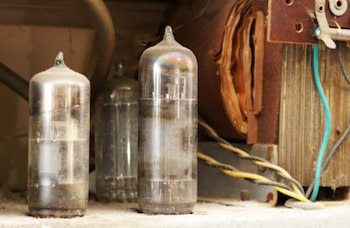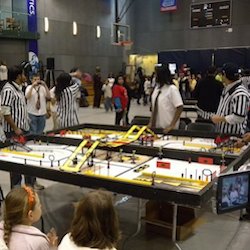As a boy growing up in West Virginia, my father wanted to study science but a high school teacher convinced him he had no talent for it.
That man was not why my father became an engineer.
My father joined the Navy, served in the Korean War and became a non-commissioned officer.
While enlisted, he took a class in radio/radar technology. The instructor, a well-respected engineer, turned out to be a great teacher – at least for my father. Which is great enough for me.
 My father became the best student in the class. The instructor’s encouragement convinced him to pursue a career in engineering.
My father became the best student in the class. The instructor’s encouragement convinced him to pursue a career in engineering.
My father earned degrees in electrical and a nuclear engineering and made a long career working with technologies evolved from those he learned in that first class.
Now retired, my father decided to find out who this teacher was who had made such an impact on his life.
Nick Holonyak invented the Light Emitting Diode (LED). He is winner of the IEEE Medal of Honor.
Before that he was the first post graduate student of John Bardeen who with fellow Nobel Laureate, Walter Brattain, invented the first transistor.
Somewhere in between these accomplishments, he taught engineering to a class of military personnel.
When my father speaks of Nick Holonyak it is with gratitude and wonder.
 My father, the engineer, encouraged me to love science. I studied mathematics and physics and make my living building software.
My father, the engineer, encouraged me to love science. I studied mathematics and physics and make my living building software.
I encourage my grade school aged daughter to love science. This year, my daughter’s robotics team competed at the New York City FIRST LEGO League Championship.
These are perhaps small things to a man who assisted Nobel Laureates, won prestigious engineering awards, worked at Bell and GE Labs and continues to teach at a research university in a position he’s held for over forty years.
But Nick Holonyak is the reason my father became an engineer. His teaching kindled an enthusiasm that is a source of generational wealth to our family.
Thank you.

